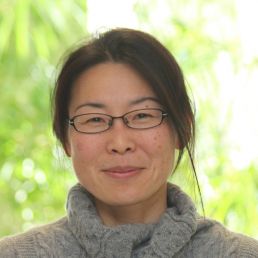Professor Keiko Yoshioka recalls the joy of running through fields of grass that were as tall as her near her childhood home in Osaka, Japan. As a young student, she learned the role of agricultural innovation in avoiding worldwide food shortages. Curiosity about the verdant growth around her led to agricultural studies at Hokkaido University. She feels her success depends in great part on the power of education, particularly the innovative instruction she received at her University-supported middle school.
However, Yoshioka and her classmates suddenly confronted a lack of job opportunities for educated women upon graduating with their BSc. Although she proceeded to earn a PhD and a post-doctoral role at the prestigious RIKEN institute, Yoshioka felt that there would be no opportunity to gain a professorship in Japan.
At the time, Yoshioka had a minimal grasp of English, but her inherent drive to “go with optimism!” led her to post-doctoral jobs at the Waksman Institute in New Jersey and the Boyce Thompson Institute at Cornell University. She knew to become a professor she had to set the goal of publishing discoveries at the top of her field. Although she was not afraid to fail and move to another job, her discoveries yielded several top publications on plant-pathogen interactions.
Yoshioka says that many students see a professorship as the goal of a successful career. As a Professor, Yoshioka advises them that she defines success as happiness at what you do. “Take the time in your 20s to figure out what you want so you are never in a position to regret a MSc, PhD or postdoc.”
Yoshioka’s search for her desired professorship landed her a position at U of T to continue her studies of plant-pathogen interactions. She has come to love Canada, and this city whose broad and deep scientific opportunities also support her partner. Initially, her lab and her department’s focus was on the molecules inside plant cells, but she gradually started applying her knowledge of what was happening within the cell to effects on crop plants in the real world.
One of Yoshioka’s most cherished projects is a collaboration regarding the devastating coconut blight disease in West-Africa. Researchers from Africa came to Toronto for training in molecular biology to characterize and combat coconut pathogens. Yoshioka is happy that this initiative also improved the lives of the farmers, primarily women, who depend on their coconut crop. Furthermore, this project led to her most recent research endeavor, the immunization of plants via beneficial soil microorganisms.

